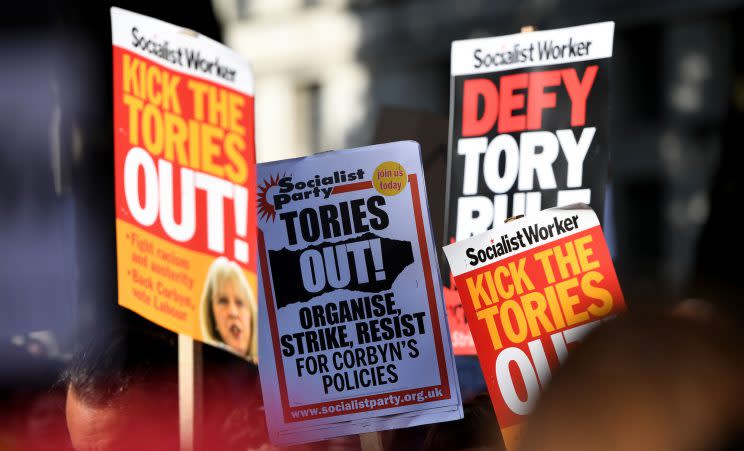Inspired by the election? Here's how you can make your voice heard other than by voting

Voter turnout for the General Election 2017 was at its highest level since 1997, when Tony Blair swept to victory by landslide.
At 68.7 per cent, the number of votes cast was up by more than two per cent on 2015, with high youth turnout believed the reason for Labour’s unexpected surge.
However, since 2001 voter turnout has been low in comparison to previous decades: turnout was at 78.8 per cent in the first of two elections in 1974, and at 83.9 per cent in 1950, a post-War high.
Elections tend to pique the public’s political interest, but people do not need to wait until elections before making their voice heard again.
Ros Taylor, the editor of Democratic Audit at the London School of Economics and Political Science (LSE), provided some tips for those who wish to remain politically involved between now and the next election (which could be sooner rather than later).
Think about getting involved in a party
“You need to think about whether you want to get involved in a party,” Ms Taylor said.
“Just after an election is the perfect time to join because if you get involved, if we do have an election in 2022 you could be running as an MP — that’s about the time it takes to work your way through the party mechanism and find out how it works.
“Now is the time to get involved if you feel identification with a party and if you want to go out there and make a difference.”
Join or start a campaigning group
“If it’s a national issue there will almost certainly be an organisation that’s campaigning about it. If it’s a local issue there might be, and if there isn’t then that’s something that you could start yourself,”Ms Taylor said
It can be hard to know where to start a campaign, she said, but a book such as Lobbying For Change is a good start.
GENERAL ELECTION RESULT 17: MORE POLITICAL ANALYSIS FROM YAHOO UK
DUP Wikipedia page locked after prankster edit it claiming party was founded by Hitler
The seven challenges facing Theresa May in the next few days
Jeremy Corbyn’s turnaround draws praise from his fiercest critics
Five reasons why Theresa May’s snap election backfired so badly
Who are the Democratic Unionist Party and what do they believe in?
The bookies have predicted ANOTHER general election later this year
‘We all f**king hate her!’ What one Senior Tory MP told Peston about PM
The General Election 2017 voter turnout was the highest in 25 years
Ms Taylor said: “It’s amazing how powerful it feels if you really care about something and find an organisation out there that is campaigning on that issue. Just joining an organisation will make you feel that you are doing something.”
She added: “Don’t just hang out on Facebook and Twitter having a whinge, because while Facebook and Twitter are great ways to promote your cause once you get involved you’re just talking in a bit of an echo chamber.”
When the opportunity arises, protest
One of the easiest ways for people to make their voice heard is by protesting. It may not have the same impact as joining a campaign, but it still serves a purpose, according to Ms Taylor.
She said: “It’s a great way to feel solidarity with other people, going on a march, getting out there, it’s a great way to meet people.
“And even though it might make you angrier about the issue it will make you feel like you’re part of a community and that will make you feel better about your political involvement and your ability to change things.”
Make sure know how our democracy works
Democracy has “all kinds of mechanisms”, Ms Taylor said, that the country is not adequately educated about.
She said: “It’s all made very opaque. There are all kinds of things going on and all kinds of mechanisms which are really obscure for influencing policy.
“These aren’t explained, they aren’t even explained in citizenship classes at school, and there aren’t many places where you can just go and find out about them.”
She suggested visiting the parliament website, which has many explainer sections, and booking a tour of the House of Commons.
“It gives you an anchor and a way in, and then you can start learning about the different ways that committees, lobby groups, MPs, peers, academics and all the other people influence what goes on there.”
But if Westminster is out of reach a council meeting most likely isn’t, she said.
“Not that many people go to council meetings, they think it will be boring, but actually it isn’t necessarily – especially if it’s about something that’s in your area. It’s about things like housing, which a lot of people care deeply about and councils spend a lot of time discussing.”

 Yahoo News
Yahoo News 

